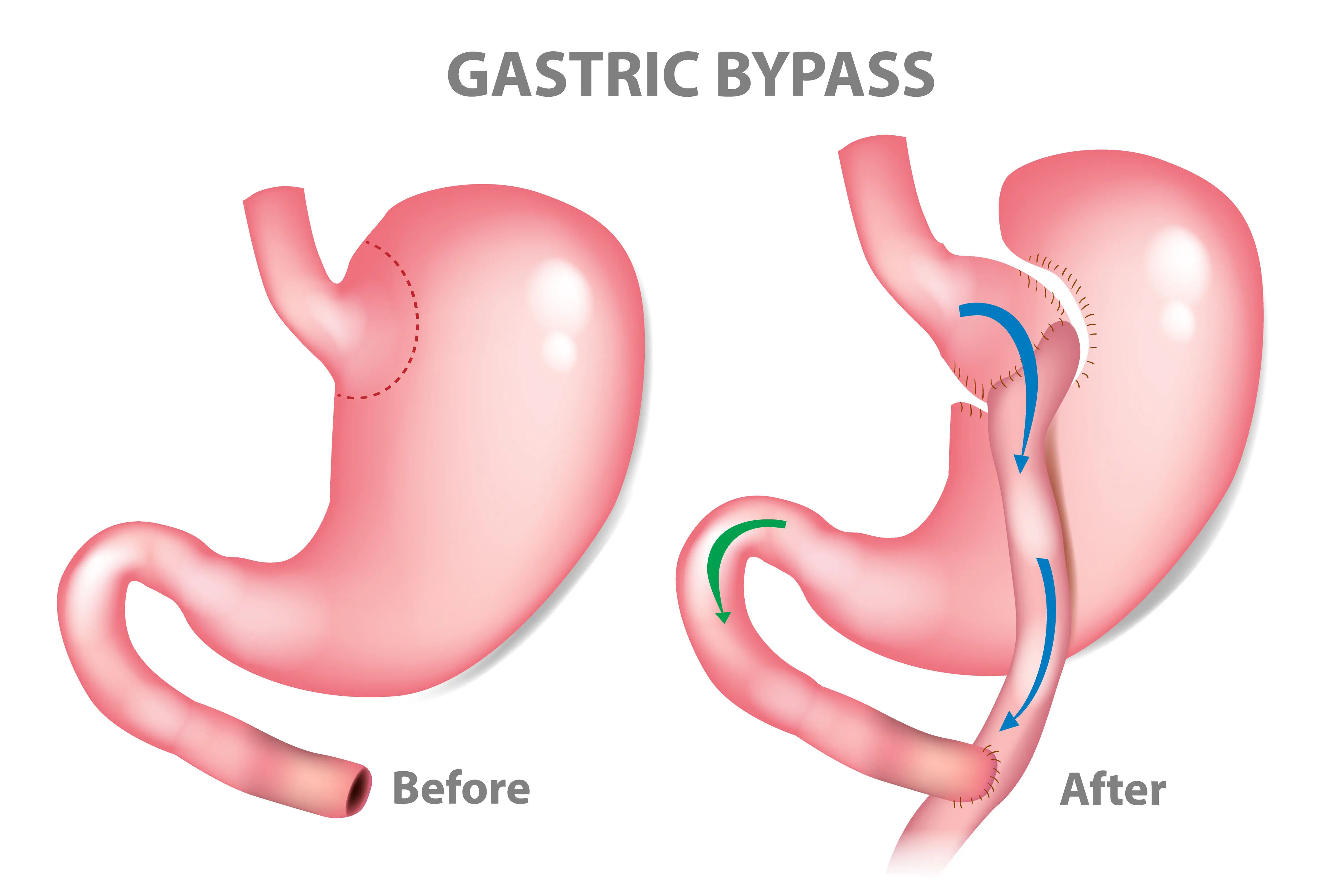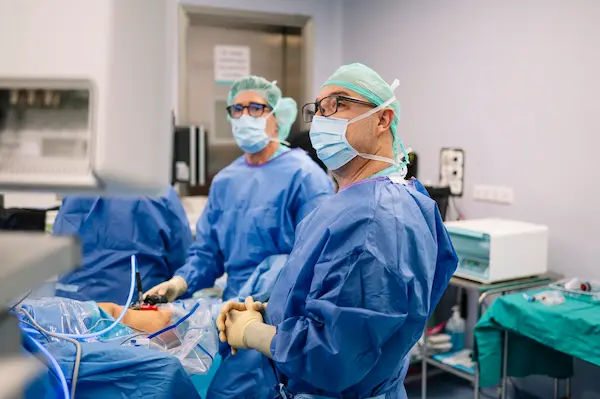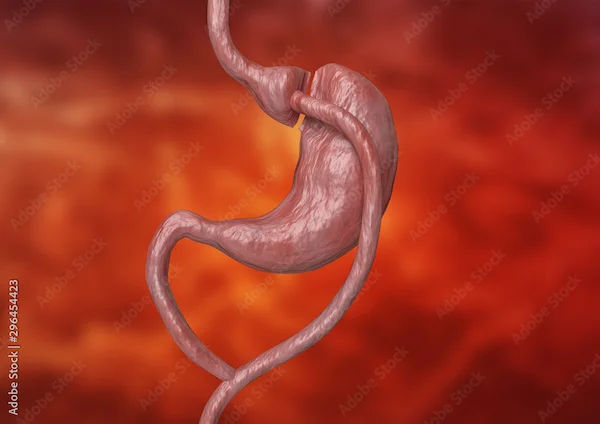Liquid Diet For Gastric Bypass Surgery
Understand the importance of a liquid diet after gastric bypass surgery, including phases, food options, and recovery tips.


Introduction
Undergoing gastric bypass surgery is a significant step toward better health, especially for those struggling with obesity. However, the journey doesn’t end with the surgery—what you eat afterward plays a crucial role in recovery and long-term success. One of the most important phases after surgery is following a liquid diet.
If you or a loved one is preparing for or recovering from gastric bypass surgery, this guide will help you understand why a liquid diet is essential, what it includes, and how to follow it safely.
Why Is a Liquid Diet Needed After Gastric Bypass Surgery?
After gastric bypass surgery, your stomach is much smaller, and your digestive system needs time to heal. A liquid diet helps in several ways:
Reduces strain on the stomach – Liquids are easier to digest, preventing discomfort or complications.
Prevents dehydration – Staying hydrated is crucial for healing.
Ensures proper nutrition – Since you can’t eat solid foods initially, liquids provide essential vitamins and minerals.
Helps in weight loss – Following the diet correctly supports healthy, gradual weight loss.
Consult Top Specialists for Personalised Health Advice
Phases of the Post-Surgery Diet
The liquid diet is typically divided into phases, each gradually reintroducing different types of foods. Here’s what to expect:
1. Clear Liquid Phase (First Few Days After Surgery)
This phase includes only clear, sugar-free liquids to prevent nausea and dehydration. Examples:
Water, sipped slowly
Clear broths made from vegetables or lean meat
Sugar-free gelatin
Non-caffeinated herbal teas
Diluted, unsweetened juices in small amounts
Avoid: Carbonated drinks, sugary juices, or anything with caffeine.
2. Full Liquid Phase (Weeks 1-2 After Surgery)
Once your stomach tolerates clear liquids, you can move to full liquids, which are thicker and more nutritious. Examples:
Protein shakes with low sugar and high protein
Skim or lactose-free milk
Unsweetened, smooth yoghurt
Strained soups blended until smooth
Unsweetened almond or soy milk
Focus on protein—it helps with healing and prevents muscle loss.
3. Pureed & Soft Foods (Weeks 3-4)
After the liquid phase, you’ll slowly introduce soft, pureed foods like:
Mashed avocado
Blended cottage cheese
Scrambled eggs
Pureed cooked chicken or fish
Avoid: Tough meats, raw vegetables, or anything hard to digest.
4. Solid Foods (After 4-6 Weeks)
Once your doctor approves, you can start eating small portions of soft solid foods, focusing on lean proteins, cooked vegetables, and whole grains.
Tips for Success on a Liquid Diet
Following a liquid diet after surgery can be more manageable with a few practical strategies:
Sip fluids slowly throughout the day
Avoid using straws to reduce air intake and prevent bloating
Separate fluids from meals by waiting 30 minutes before or after eating
Prioritise protein with every meal
Avoid sugary, carbonated, or high-fat liquids
Take prescribed supplements as directed by your doctor
Foods to Avoid After Gastric Bypass
Even after moving to solid foods, some items can cause discomfort or weight regain. Avoid:
Sugary snacks or beverages
Fried and greasy foods
Dense meats that are difficult to chew
Raw vegetables in early recovery
Alcohol
When to Seek Help
While adjusting to a liquid diet, watch for warning signs like:
Severe nausea/vomiting
Inability to keep liquids down
Extreme fatigue or dizziness
Signs of dehydration
If you experience these, consult your doctor immediately.
Final Thoughts
Following a liquid diet after gastric bypass surgery is essential for a smooth recovery and long-term success. While it may feel challenging at first, remember that this phase is temporary and crucial for healing.
If you’re preparing for surgery or struggling with post-op nutrition, Apollo 24|7 can help! You can consult a dietitian or book a follow-up test to ensure you’re on the right track.
Consult Top Dieticians
Consult Top Specialists for Personalised Health Advice

Ms. Sushma Jaiswal
Dietician
42 Years • M.Sc.(Food & Nutrition)
Bengaluru
Swasthya Nutrition, Bengaluru

Ms Malabika Datta
Dietician
19 Years • Bsc (Clinical Nutrition & Dietetics), Msc (Dietetics & Food Service Management)
Kolkata
Malabika’s Diet Clinic, Kolkata

Neelanjana J
clinical nutrition
3 Years • Bsc., Msc. Nutrition and Dietetics.
Bengaluru
Apollo Clinic, JP nagar, Bengaluru

Dr Darshana R
General Physician/ Internal Medicine Specialist
15 Years • MBBS, MD, DNB (Internal Medicine), Diploma in Allergy, Asthma and Immunology , Fellowship in Diabetes
Bengaluru
Apollo Clinic, JP nagar, Bengaluru
(125+ Patients)
Ms Chetu Singhi
Dietician
20 Years • MSC Dietetics & Nutrition
Kolkata
RB Diagnostic - Dietician Diet2fit Chetu Singhi, Kolkata
Consult Top Dieticians

Ms. Sushma Jaiswal
Dietician
42 Years • M.Sc.(Food & Nutrition)
Bengaluru
Swasthya Nutrition, Bengaluru

Ms Malabika Datta
Dietician
19 Years • Bsc (Clinical Nutrition & Dietetics), Msc (Dietetics & Food Service Management)
Kolkata
Malabika’s Diet Clinic, Kolkata

Neelanjana J
clinical nutrition
3 Years • Bsc., Msc. Nutrition and Dietetics.
Bengaluru
Apollo Clinic, JP nagar, Bengaluru

Dr Darshana R
General Physician/ Internal Medicine Specialist
15 Years • MBBS, MD, DNB (Internal Medicine), Diploma in Allergy, Asthma and Immunology , Fellowship in Diabetes
Bengaluru
Apollo Clinic, JP nagar, Bengaluru
(125+ Patients)
Ms Chetu Singhi
Dietician
20 Years • MSC Dietetics & Nutrition
Kolkata
RB Diagnostic - Dietician Diet2fit Chetu Singhi, Kolkata



